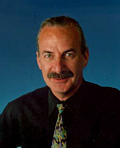Home > Best of Nanotechnology > Who's Who
Last Updated: Monday, 20-Apr-2015 19:51:36 PDT
Who's Who in the Nanospace
Below you will find - in no particular order - a Who's Who Directory for individuals involved in either nanoscale sciences or advanced nanotechnologies. If you have another nominee, please contact us with their name and data, including the URL of their website, and one for their bio, photo, CV, etc. New entries will be judged by the impact they have had or are having on the Nanospace.
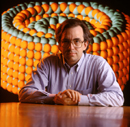
|
K. Eric Drexler: Dr. Drexler is a researcher concerned with emerging technologies and their consequences for the future. In the mid 1980s, he introduced the term 'nanotechnology' to describe atomically precise molecular manufacturing systems and their products. Advanced nanotechnologies will make possible many dreams (and nightmares) first articulated in the literature of science fiction. He is a founder and current Chairman of the Foresight Institute, a nonprofit educational organization established to help prepare for advanced technologies. He wrote Engines of Creation (1986) to introduce a broad audience to the prospect of advanced nanotechnologies -- their nature, promise, and dangers -- and Nanosystems (AAP 1992 Most Outstanding Computer Science Book) to provide a graduate-level introduction to the fundamental physical and engineering principles of the field. BIO & CV. |
|
Ralph Merkle, Ph.D.: Dr. Merkle received his Ph.D. from Standford University in 1979 where he co-invented public key cryptography. He joined Xerox PARC in 1988, pursuing research in computational nanotechnology until 1999.
|
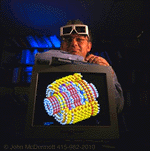
|
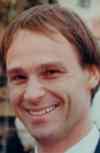
|
Gerd Binnig & Heinrich Rohrer: Inventors of the Scanning Tunneling Microscope (1981), and awarded the Nobel Prize in Physics in 1986 for their work in scanning tunneling microscopy [which they shared with Ernst Ruska, designer of the first electron microscope]. An STM can image details down to 1/25th the diameter of an atom - several orders of magnitude better than the best electron microscope.
|
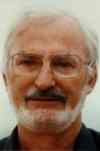
|
|
Harry Kroto: [Professor Sir Harry Kroto FRS] in 1996 Professor Kroto was jointly awarded the Nobel Lauriate for chemistry with Richard Smalley and Robert Curl, for the discovery of C60 [buckyballs], and later that year he received a Knighthood by Queen Elizabeth II. (In 1985 his experiment, designed to unravel the carbon chemistry in red giant stars, revealed the existence of Buckminsterfullerene)
|
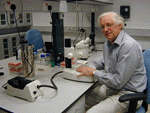
|
John Walker: [Professor Sir John Walker FRS] 1997 Nobel for Chemistry: along with American biochemist Paul Boyer, Professor Walker was awarded the Nobel Prize for Chemistry in 1997, for their explanation of the enzymatic process involved in the production of the energy-storage molecule adenosine triphosphate (ATP). (Danish chemist Jens C. Skou also shared the award for separate research on the molecule.) These findings offer insight into the way life forms produce energy.
|
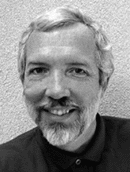
|
James Von Ehr II: James Von Ehr is the founder, President, and Chief Executive Officer of Zyvex Corporaton, the first nanotechnology development company. He is personally contributing $2.5 million to UTD to set up their Nanotech Center. He is also co-founder of the Feynman Grand Prize, a $250,000 prize for a particular embodiment of nanotechnology. He co-founded the Texas Nanotechnology Initiative, a non-profit organization dedicated to positioning Texas as a world leader in the discoveries, development, and commercialization of nanotechnology. He also manages the Von Ehr Foundation, a private charitable foundation he established in 1999.
|
|
Robert A. Freitas Jr.: Dr. Freitas joined Zyvex in March, 2000. He has degrees in physics, psychology, and law, and has written more than 100 technical papers, book chapters, or popular articles on a diverse set of scientific, engineering, and legal topics. He co-edited the 1980 NASA feasibility analysis of self-replicating space factories and later authored the first detailed technical design study of a medical nanorobot ever published in a refereed biomedical journal.
|
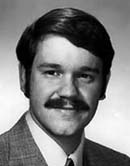
|
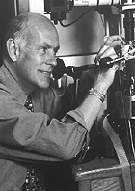
|
Richard E. Smalley: Dr. Smalley was the head of the Center for Nanoscale Science and Technology at Rice University, and Chairman of the Board Carbon Nanotechnologies, Inc.. Recipient of the 1996 Nobel Prize for chemistry for the discovery of fullerenes. He has served as Chairman of the Rice Quantum Institute, 1986 - 1996, and was on the Scientific Advisory Board, CSIXTY, Inc., February 1995 - 2005. He was the Director of the Rice Center for Nanoscale Science & Technology (CNST), 1996 - 2001, and was the Director of Carbon Nanotechnology Laboratory, 2002 - 2005. The Smalley group is developing the SWNT synthesis, purification, manipulation, and characterization techniques necessary to move SWNT materials from a scientific curiosity to a viable component of working technologies. |
|
David Tomanek: Dr. Tomanek is Professor of Theoretical Condensed Matter Physics at Michigan State University. Main research interest is to understand fundamental properties of nanostructured materials using advanced numerical techniques. He also maintains The Nanotube Site. BIO & CV. |
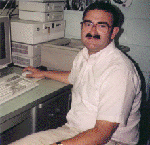
|

|
John Storrs Hall: Known as the originator of the Utility Fog concept, "Josh" is also a Research Fellow of the Institute for Molecular Manufacturing [IMM]. He has a background in computer science, particularly parallel processor architectures, artificial intelligence, particularly agoric and genetic algorithms as used in design, and reversible computing, and his research interests include molecular nanotechnology, paritcularly the theory of self-reproducing machines, and the design of useful macroscopic machines using the capabilities of molecular manufacturing. BIO & CV. |
|
Ray Kurzweil: Inventor, scientist, engineer, entrepreneur, writer - Ray Kurzweil is perhaps today's most outspoken proponent of the Singularity, and the merger of human and machine intelligence. Among his awards are the $500,000 2001 Lemelson-MIT Prize - world's largest in invention and innovation, and the 1999 National Medal of Technology, the nation's highest honor in technology. In 1988, he was named Inventor of the Year by MIT and the Boston Museum of Science, and in 1986 was named Honorary Chairman for Innovation of the White House Conference on Small Business. A noteworthy aspect of his unique track record is that all four of the companies he founded, built, and sold not only created entirely new technologies and new markets, but still continue today as leaders in the same markets that they pioneered. He is currently involved in these business ventures. BIO & CV. |

|
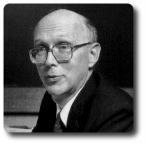
|
George M. Whitesides: Dr. Whitesides is best known for his groundbreaking work in self-assembling chemical compounds. He is now Mallinckrodt Professor of Chemistry at Harvard University. He wrote an insightful, albeit controversial article called The Once and Future Nanomachine. |
|
Christine Peterson: Christine Peterson writes, lectures, and briefs the media on coming powerful technologies, especially nanotechnology. She is cofounder and President of Foresight Institute, a nonprofit which educates the public, technical community, and policymakers on nanotechnology and its long-term effects. She directs the Foresight Conferences on Molecular Nanotechnology, organizes the Foresight Institute Feynman Prizes, and chairs the Foresight Gatherings. With Eric Drexler and Gayle Pergamit, she wrote Unbounding the Future: the Nanotechnology Revolution, which sketches nanotechnology's potential environmental and medical benefits as well as possible abuses. An interest in group process led to coauthoring Leaping the Abyss: Putting Group Genius to Work with Gayle Pergamit. BIO. |
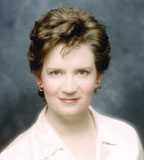
|
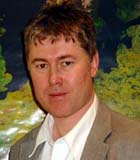
|
Tim E. Harper: Tim Harper is the founder & CEO of CMP Cientifica, and the Co Author of the Nanotechnology Opportunity Report™. He is also the Executive Director of European NanoBusiness Association and an advisor to the US NanoBusiness Alliance. He contributes a weekly column to the Institute of Physics Nanotechweb site. |
|
Richard P. Feynman: One of the greatest theoretical physicists of the twentieth century. Famous for - among other things - this quote which is regarded as the "start" of nanotechnology "The principles of physics, as far as I can see, do not speak against the possibility of maneuvering things atom by atom. It is not an attempt to violate any laws; it is something, in principle, that can be done; but in practice, it has not been done because we are too big." BIO. |
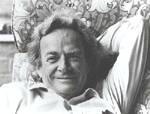
Photo copyright Christopher Sykes |
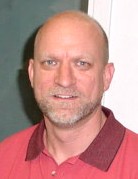
Mike Treder |
Mike Treder: Executive Director of CRN, is a business professional with a background in technology and communications company management. He serves on the Boards of Directors of the Human Futures Institute and the World Transhumanist Association, and is a member of the Executive Advisory Team for the Extropy Institute. |
|
Chris Phoenix: CRN’s Director of Research, is an inventor, entrepreneur, and published author in the fields of nanomedicine, nanomanufacturing, and administration of nanotechnology. He holds a Master’s Degree in computer science from Stanford University.
The Center for Responsible Nanotechnology™ (CRN) A non-profit organization, formed to advance the safe use of molecular nanotechnology. The Center for Responsible Nanotechnology™ (CRN) was founded by Chris Phoenix and Mike Treder in December 2002. The vision of CRN is a world in which nanotechnology is widely used for productive and beneficial purposes, and where malicious uses are limited by effective administration of the technology. |
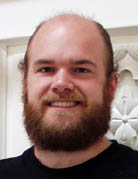
Chris Phoenix |
|
Mihail C. Roco: Dr. Roco is Senior Advisor for Nanotechnology, NSF and Chair, National Science and Technology Council's subcommittee on Nanoscale Science, Engineering and Technology (NSET). May 2002 Interview on NNI. |
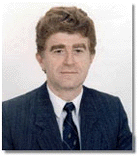
|
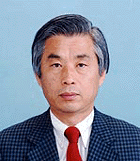
|
Sumio Iijima: Dr. Iijima has been a Senior Research Fellow at NEC Corporation since 1987, and discovered carbon nanotubes in 1991. He is also a professor of materials science at Meijo University in Nagoya. He is currently taking a global leading role as a Representative Researcher in the International Cooperative Research Project "Nanotubulites" of Japan Science and Technology Corporation (ICORP/JST). He also serves as Director of the Research Center for Advanced Carbon Materials of National Institute of Advanced Industrial Science and Technology (AIST). CV |
|
Josh Wolfe: Josh Wolfe is a co-founder and Managing Partner of Lux Capital, focusing on investments in Nanotechnology and Software (Artificial Intelligence, Distributed Systems). He is also a Managing Director of Angstrom Partners, a merchant bank specifically focused on nanotechnology, a Senior Associate of the Foresight Institute for Nanotechnology, the Coordinator for the Institute of Molecular Manufacturing's Prize in Computational Nanotechnology, a co-founder of The NanoBusiness Alliance and a member of the Cognitive Science Society. He is the author of "The Nanotech Report" and the monthly "Forbes/Wolfe Nanotech Report". BIO. |

|
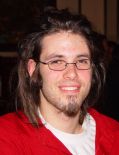
|
Steve Lenhert: Steve Lenhert is a PhD student, and scanning probe microscopist at the Interface Physics department of the University of Münster. He is the author/editor of the web-based Encyclopedia Nanotech and co-moderates & contributes to the sci.nanotech newsgroup, adding his very well informed 2c's worth. Recently he has co-founded QuaNTeQ, LLC (Nanoword.net), a start-up company focusing on nanotech education, networking, and distribution of publications. And until the untimely demise of the nanotechnology category at About.com, he oversaw what was once the most informative and current, general purpose Nanotechnology websites. |
Other Who's Who sites:
 Sol-Gel
Sol-Gel|
|
||
|
|
||
| The latest news from around the world, FREE | ||
|
|
||
|
|
||
| Premium Products | ||
|
|
||
|
Only the news you want to read!
Learn More |
||
|
|
||
|
Full-service, expert consulting
Learn More |
||
|
|
||
